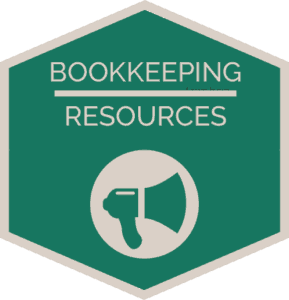Having a set of standard operating procedures (SOPs) when it comes to your accounts payable is invaluable for keeping your cash flow cycle smooth and your business running at peak performance.
There are certain questions you should ask yourself when it comes to the accounts payable process and how you can use it to help make your business as efficient as possible.

What is Accounts Payable?
Read the following or watch this 30-second video:
Accounts payable (often abbreviated as A/P) refers to money that you have to pay. It means money that you’re paying to your contractors, vendors, or your suppliers (not your employees). It’s very important to keep tabs on this number to manage your cash flow effectively.
Why You Need Standard Operating Procedures
Standard Operating Procedures (particularly when it comes to accounts payable) are extremely helpful because they help you systemize the way in which you pay your vendors, contractors, and suppliers. This matters because, as mentioned above, it helps you stay organized and on top of the money going out of your business. If you lose track of your accounts payable, you can create unnecessary roadblocks in your cash flow cycle, which can affect your overall profitability (think late fees, interest, losing relationships with quality vendors).
Money cannot flow without clarity.
Denise Duffield-Thomas said it best: “Money needs clarity.”
Clear standard operating procedures for Accounts Payable will help you keep a tight grip on your money, leading to a smoother experience for both clients and vendors.
There are two sides to consider with Accounts Payable:
- When you’re the client, and you’re paying your vendors/contractors (that’s YOUR accounts payable process)
- When you’re the vendor, and you’re invoicing your clients (you become part of THEIR accounts payable process)
Having a CLEAR SET of Standard Operating Procedures when it comes to both sides of A/P will make for an overall smooth experience that will shorten your cash flow cycle and get money to you faster.
1. When you’re the client, and you’re paying your vendors/contractors (that’s YOUR accounts payable process).
The following MUST have answers and MUST be systemized in your business:
• How do you engage your vendor/contractor?
• How do they get their invoices to you?
• What sort of info do you need on that invoice?
• How do they submit W9’s securely?
If any of these are left unanswered, loopholes can occur that cause unneeded stress and confusion.
2️. When you’re the vendor, and you’re invoicing your clients (you become part of THEIR accounts payable process)
Invoicing your clients is an opportunity to exemplify a HIGH level of professionalism. WOW your client with what a great vendor you are! Check the following:
• Make sure your invoice is complete
• How do your clients send money to you? PayPal? Stripe? Cash by carrier pigeon?
• Automatically submit your W-9 form to your client!
So, WHY send W-9’s as a vendor??
Everyone knows you need to submit W-9’s. Don’t make your client ask for it. Just submit it to them.
Doing this shows your clients that they don’t have to do ANY extra steps when it comes to working with you.
When you help make their lives easier by providing necessary information or paperwork before they have to ask for it, it helps you stand out as a vendor who provides star quality customer service.
It’s a small thing, but it makes all the difference.
Do you have a set of standard operating procedures for your accounts payable?
Just like other aspects of your business, your finances need to be systemized in order to make your life easier and your financial success more probable.
You’ll want a really clean and pristine set of standard operating procedures (SOPs) when it comes to Accounts Payable!
Even though we hate to see money go, having a clear set of systems that help make this process smooth will create a much more efficient cash flow cycle overall. They also help you to feel more organized and empowered when it comes to your money.
Feel like you need a crash course on small business finance? I got you covered: check out my financial basics course, Chief Wealth Officer – it’s proved an invaluable tool and resource to so many clients and students over the years!

